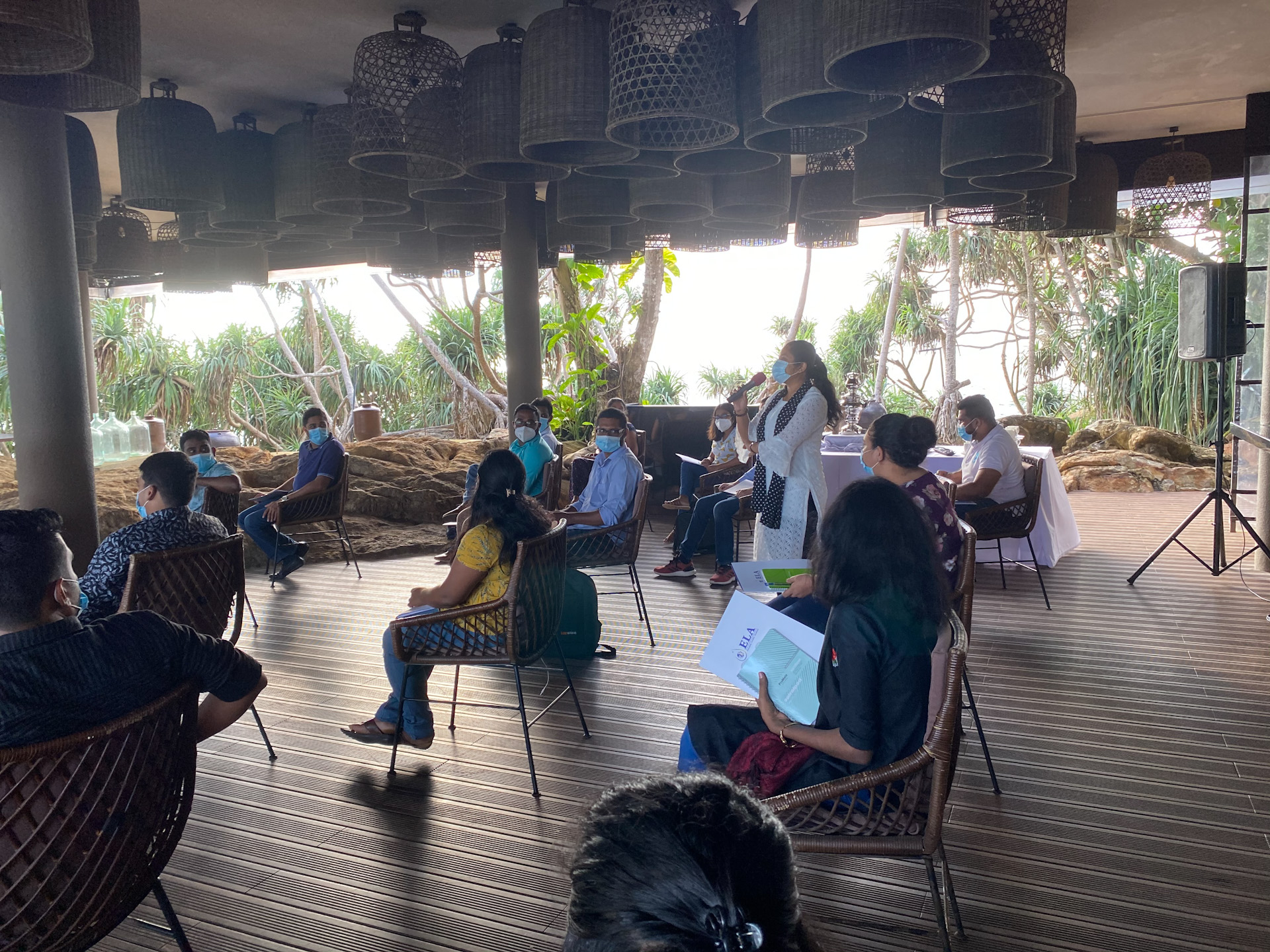
Globally, persons with disabilities are often marginalized and excluded from political engagement, decision-making processes, and economic opportunities. As a result, they do not have their needs met. Rimaza Hassan, an intern from IRI’s Emerging Leaders Academy, seeks to change that in Sri Lanka.
Since her enrollment in IRI’s Emerging Leaders Academy in late 2020, Rimaza has advocated for platforms that offer equal opportunities and improve accessibility and inclusivity of persons with disabilities in the Sri Lankan national government. Rimaza argues that persons with disabilities are disproportionately excluded from political life in Sri Lanka because there is no formal mechanism for the government to communicate to the persons with disabilities community.
Through her Emerging Leaders Academy internship, Rimaza established the “Media Services Focal Point for Persons with Disabilities” within the Department of Information under the Ministry of Mass Media. The center is the first of its kind in any governmental institution in Sri Lanka. The Minister of Mass Media, Dullas Alahapperuma, appointed Rimaza to lead the center and collaborate with different organizations to raise awareness of the rights of persons with disabilities.
This is a major step forward in the government’s outreach to the persons with disabilities community. Although the Ministry works with other government entities to ensure outreach to diverse communities of persons with disabilities, until now, little has been done to ensure this level of inclusion. For example, ensuring that sign language interpreters are available for public announcements and press releases has not been consistent.
“Communication barriers is the major issue,” Rimaza says. “We also need to make sure all media in Sri Lanka is accessible. But as a first step, making all cabinet and government meetings and press releases inclusive is important.” She adds that this new center will achieve this by ensuring government communications from all ministries move to remove communication barriers faced by persons with disabilities.
Rimaza was driven from an early age to think and act inclusively. “Though I represent the Muslim community, my parents always encouraged me not to stick to the cultural barriers that many Muslim girls undergo,” Rimaza says. Her drive has led to a long history of advocating for the inclusion of underserved communities, including tea plantation workers, persons living with HIV, indigenous communities, and the persons with disabilities communities.
IRI’s Emerging Leaders Academy allowed Rimaza to push for real change, she says. “The Emerging Leaders Academy helped me to build a good network, improve my skills and knowledge.” Each year, the Emerging Leaders Academy brings together up-and-coming changemakers from across the country and different sectors – civil society, political parties, media, academia, government, and the private sector – to discuss their common vision for their country. The USAID-funded program fosters a diverse, multi-sector cohort of leaders who understand the importance of inclusion in all aspects of their work. Emerging Leaders Academy participants are encouraged to push for political and social inclusion, and to explore how to bring underrepresented communities into conversations about governance.
As one of five Emerging Leaders Academy members selected to take part in a six-month internship program, Rimaza has worked with the Ministry of Mass Media since July 2021. “The internship provided by IRI has helped me to develop my knowledge and skills as well as provided me the opportunity to work directly with the Ministry of Mass Media on empowering persons with disabilities,” she adds. Rimaza hopes this is the start of more inclusive governance across Sri Lanka.
Top